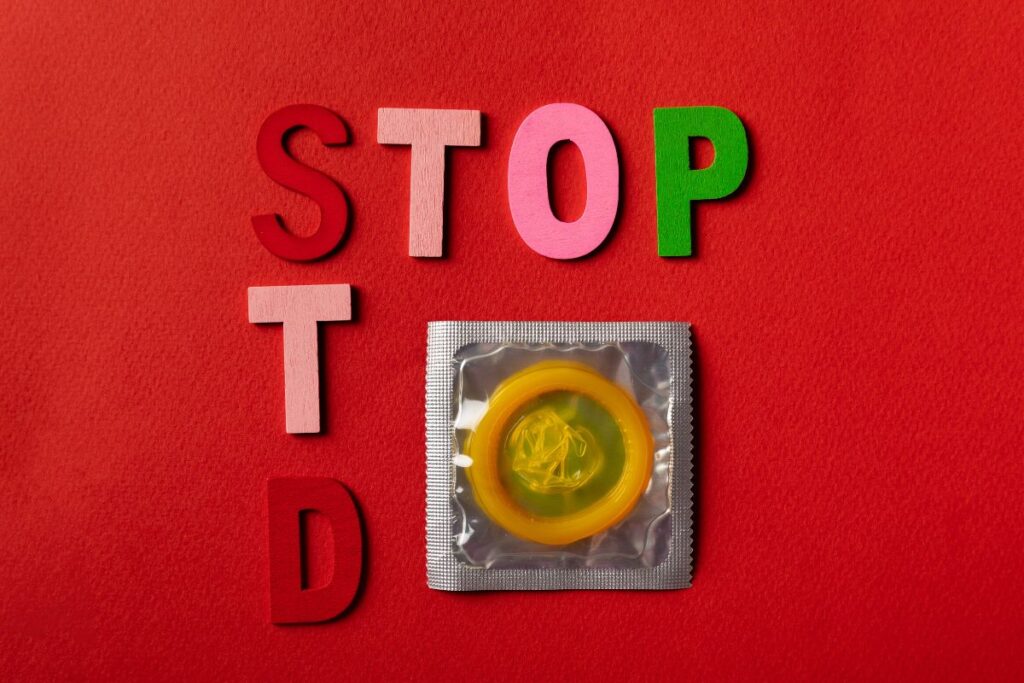Viral Hook:
Sexually transmitted diseases (STDs) are becoming more and more common in India, yet many people are afraid to get treatment because of the stigma that comes with them. You may think that you can’t get an STD until you have symptoms or that it only affects people who have multiple partners. Myths like these are critical on two fronts: they jeopardise your sexual health and hamper the fight against STDs. Let’s put an end to such myths once and for all by giving you the information that matters in this case.
The Issue:
In India, sexual health is one subject that nobody wants to deal with. As per a study published by The Lancet, India is one of the countries that has one of the largest populations of people living with HIV, with roughly around 2.1 million people affected. This, however, does not end the case. There are still cases of STDs due to a lack of sexual health education, which leads some people to become more susceptible to such diseases. People suffering from HIV, syphilis and other STDS are faced with the perception that they are unwell, at least until a bad diagnosis. Such information must be debunked, as such information is dangerous and requires measures on how to combat these diseases.
Myth-Busting:
1. Myth: “You can’t get an STD if you don’t have symptoms.”
Fact: Many STDs are asymptomatic, which means that people can carry the virus or bacteria without showing symptoms. A report by the Indian Journal of Medical Research states that approximately 50-70% of chlamydia and gonorrhoea cases are asymptomatic, especially in women. The only way to confirm whether or not you have an STD is through testing.
2. Myth: “You can’t get an STD from oral sex.”
Fact: This myth is dangerous. STDs like herpes, gonorrhoea, and HPV can be transmitted through oral sex. According to a study by the Indian Association for Sexual Health, about 30% of oral infections are caused by HPV, which can lead to oral cancer. Always use protection, even during oral sex.
3. Myth: “STDs are a problem only for people with multiple sexual partners.”
Fact: While having multiple sexual partners does increase the risk of contracting an STD, anyone who engages in unprotected sex is at risk. According to the World Health Organization (WHO), HIV and other STIs can be transmitted from one partner to another, even if they have been in a monogamous relationship for years.
4. Myth: “STDs don’t affect me because I’m in a committed relationship.”
Fact: A monogamous relationship doesn’t guarantee safety from STDs. If one partner has had unprotected sex with others in the past, they may unknowingly pass on STIs. A report by the Indian Council of Medical Research (ICMR) found that nearly 40% of new HIV infections occur in individuals who are in long-term relationships, but their partners may have contracted the disease unknowingly.
FAQ Section:
Can I get an STD without symptoms?
Yes, many STDs in their early stages do not show any symptoms. Only routine checkups can be helpful to identify infections early and avoid long-term problems.
What are the most common STDs in India?
HIV, syphilis, chlamydia, gonorrhea, and herpes. Given that India has one of the highest rates of HIV infection, it is worrisome.
How do I protect myself from STDs?
Using condoms, getting regular STD testing, limiting the number of sexual partners, and ensuring both partners are tested can help reduce the risk of contracting an STD.
Can STDs be treated?
Yes, many STDs are treatable with medication, especially bacterial STDs like gonorrhea and chlamydia. Viral STDs, such as HIV and herpes, cannot be cured, but with proper medical treatment, you can manage them well.
Disclaimer:
The information provided in this article is for educational purposes only. It is not intended to diagnose or treat any health condition. Please consult a qualified healthcare provider for personalised advice.
How HealthPil Can Help:
At HealthPil, we offer teleconsultations with experienced gynaecologists, urologists, and sexologists whospecialisee in sexual health. Our team can guide you through STD prevention, testing, and treatment options, ensuring your privacy and providing support without judgment. Don’t wait; take control of your sexual health today!

